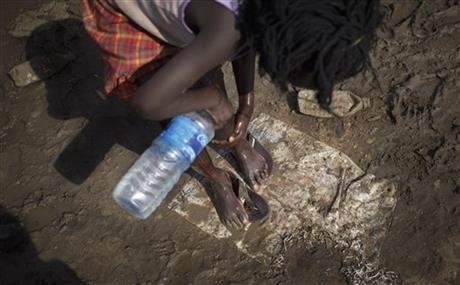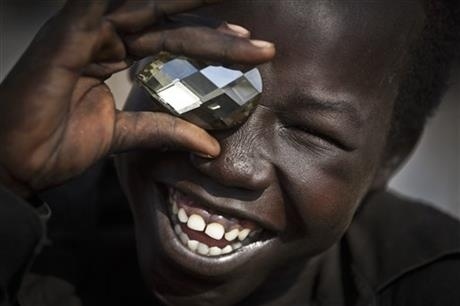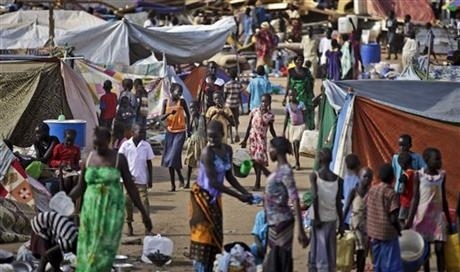Fear pulses through the United Nations refugee camp in Juba, South Sudan, after ethnic-based violence broke out throughout the nation, killing at least 1,000 people. To leave the camp means risking death, the Associated Press reports.

Some 25,000 people, mostly from the Nuer tribe, live in two camps in Juba, South Sudan's capital. Nearly 40,000 people have sought refuge in camps elsewhere in the country.
The government says that people can leave the camp and will be perfectly safe, but the men do not believe it and refuse to exit. Women and children often go out during the day to buy food, but return when the sun sets.
"It is very hard to go outside because there are people watching," Wuor Khor, a 29-year-old graduate of Juba University, told the Associated Press. "They follow you wherever you are going and then they kill you."

"It has happened several times," Khor continued. "You will not go beyond the gate. If you don't speak Dinka language you will be killed."
The "they" Khor referred to are members of the Dinka, the majority tribe from which the president hails.
In this camp, the Nuer, South Sudan's second largest tribe, feel part of a targeted minority. The former Vice President Riek Machar, a Nuer, was accused of a coup attempt on Dec. 15. Afterward, ethnically motivated fighting broke out throughout the country.
Many of the Nuer in Juba rushed to the U.N. military and logistics camp after the violence worsened, but as the numbers rapidly increased, the camp's infrastructure could not be sustained.


According to the Associated Press:
Trash lay everywhere. Open defecation took place. Things have improved: Trash is now collected. Latrines have been dug, but not quite enough yet, said Liny Suharlim, an official with the French aid group ACTED, which is now running the camp.
Makeshift tents are constructed out of towels, sheets and sticks. Wet clothes are draped on barbed wire fence. People sitting in plastic chairs sell pastries, water and a charge for a mobile phone. Dishes are rinsed in tubs of mud-brown sludge. Camouflaged military planes land at the airport runway only a football field distance away.
Some of the refugees are traumatized.

Doctors Without Borders is on hand to treat diarrhea and severe dehydration, but does not provide psychological help.
"I think they all need some mental support. Almost all have lost someone somewhere," said Christine Bimansha, a doctor at the camp. She believes the death toll is significantly higher than the U.N.'s estimate of 1,000-plus.
"They are still killing people on the street. Even the day before three people were killed," said Stephen Nyak, a Nuer man living in the camp.

"I will stay here until the U.N. finds a way to get me to my state... the men in the camp fear for their lives."
